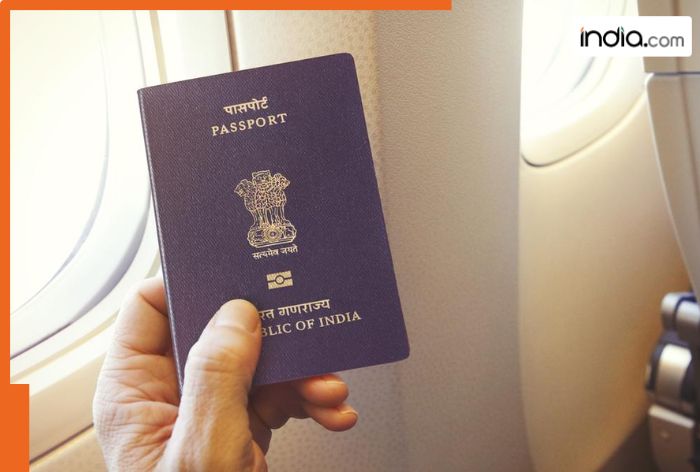Lifestyle
India Launches e-Passport Service to Enhance Travel Security

The government of India has officially launched its e-Passport service, marking a significant upgrade in the country’s passport system. This initiative is part of the broader Passport Seva Program (PSP) 2.0, aimed at modernizing and digitizing the passport application process. As stated by the Ministry of External Affairs, the e-Passport was introduced on April 1, 2024, following a pilot phase that tested its functionality. Currently, this new passport type is available only through selected passport offices across the nation.
The e-Passport is designed to enhance both security and efficiency in international travel. It combines traditional paper elements with electronic features, including a Radio Frequency Identification (RFID) chip containing personal and biometric information. This chip is embedded within the passport, allowing for secure authentication by immigration officials worldwide. A distinguishing feature of the e-Passport is the small gold symbol printed beneath the front cover, which visually identifies it as an upgraded version of the standard passport.
Understanding the e-Passport and Application Fees
The introduction of the e-Passport does not replace the conventional passport but rather offers an advanced alternative that addresses contemporary security concerns. The pricing for this new passport is set at Rs 1,500 for a 36-page booklet and Rs 2,000 for a 60-page version. These fees apply to regular applications, while expedited processing, known as Tatkal, incurs additional costs.
According to the Passport Seva website, the e-Passport aims to safeguard against forgery and fraudulent activities. The document will include printed data as well as a digital signature stored on the electronic chip, ensuring that immigration officials can verify its authenticity at border controls effectively.
Step-by-Step Guide to Applying for an e-Passport
For those interested in obtaining an e-Passport, the application process is straightforward. Here’s a step-by-step guide:
1. **Visit the Official Website**: Access the Passport Seva portal at passportindia.gov.in/psp.
2. **Register or Sign In**: Create a new account or log in to your existing account and complete the e-Passport application form.
3. **Select Passport Centre**: Choose a nearby Passport Seva Kendra (PSK) or Post Office Passport Seva Kendra (POPSK).
4. **Pay Fees Online**: Make the necessary payment for the e-Passport application online.
5. **Schedule an Appointment**: Book an appointment at your selected PSK or POPSK.
6. **Biometric & Document Verification**: Attend your appointment at the PSK/POPSK for biometric capture and document verification.
7. **Complete Application**: After verification, your e-Passport application will be processed.
This new service is part of India’s commitment to improving the travel experience for citizens while enhancing international security protocols. The introduction of the e-Passport is expected to streamline the passport application process and ensure safer travel for Indian citizens.
-

 World5 months ago
World5 months agoSBI Announces QIP Floor Price at ₹811.05 Per Share
-

 Lifestyle5 months ago
Lifestyle5 months agoCept Unveils ₹3.1 Crore Urban Mobility Plan for Sustainable Growth
-

 Science4 months ago
Science4 months agoNew Blood Group Discovered in South Indian Woman at Rotary Centre
-

 World5 months ago
World5 months agoTorrential Rains Cause Flash Flooding in New York and New Jersey
-

 Top Stories5 months ago
Top Stories5 months agoKonkani Cultural Organisation to Host Pearl Jubilee in Abu Dhabi
-

 Sports4 months ago
Sports4 months agoBroad Advocates for Bowling Change Ahead of Final Test Against India
-

 Science5 months ago
Science5 months agoNothing Headphone 1 Review: A Bold Contender in Audio Design
-

 Top Stories5 months ago
Top Stories5 months agoAir India Crash Investigation Highlights Boeing Fuel Switch Concerns
-

 Business5 months ago
Business5 months agoIndian Stock Market Rebounds: Sensex and Nifty Rise After Four-Day Decline
-

 Sports4 months ago
Sports4 months agoCristian Totti Retires at 19: Pressure of Fame Takes Toll
-

 Politics5 months ago
Politics5 months agoAbandoned Doberman Finds New Home After Journey to Prague
-

 Top Stories5 months ago
Top Stories5 months agoPatna Bank Manager Abhishek Varun Found Dead in Well









